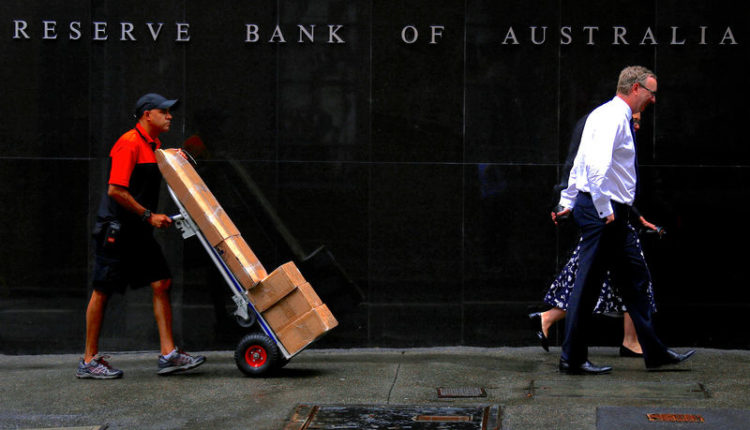Australian jobs boon at risk as RBA warns businesses against turning glum
By Swati Pandey and Wayne Cole
SYDNEY (Reuters) – As the Sino-U.S. trade war raise fears of a global recession, businesses run the risk of being caught in a self-fulfilling vicious cycle, a top Australian central banker warned on Thursday, threatening the country’s sturdy jobs market.
Reserve Bank of Australia (RBA) Deputy Governor Guy Debelle said the trade war was a “major risk” for the country’s A$1.9 trillion ($1.3 trillion) economy though it has not had a damaging effect so far.
Supporting that view, data out on Thursday showed Australia added a forecast-beating 41,100 net new jobs in July. Still, that wasn’t enough to budge the employment rate from a disappointingly high 5.2%
Analysts and policymakers have raised doubts over whether jobs growth can extend further as trade war-related uncertainties lead companies to downgrade their future hiring intentions.
“Businesses are waiting to see how the uncertainty resolves rather than invest,” Debelle said in a speech in Sydney.
“The longer businesses hold off, the weaker demand will be, which will further confirm the decision to wait. That runs the risk of a self-fulfilling downturn.”
Debelle also cautioned that the dispute over technology could prove even more damaging in the long run, forcing firms to choose between East or West rather than selling into a global market.
The warning comes as fears of a possible global recession hammered financial markets around the world. The protracted Sino-U.S. trade war has been a major worry for policymakers, with many central banks switching gears in recent months to deliver rate cuts to support growth.
U.S. stocks slid 3% overnight while yields on 10-year Treasuries fell below those on two-year paper. That inversion of the curve has been a reliable predictor of recessions in the past.
Debelle was not yet considering the inversion as a harbinger of an economic recession.
“The yield going inverted, I’m not sure how much of a signal that is at the moment,” he said in response to questions following the speech.
“At the moment, the U.S. economy is actually growing above trend so they’ve got a fair way to slow from here.”
Australia’s economy has dodged a recession since the early 1990s thanks to insatiable appetite from China for its key commodities but growth has now slowed to the weakest since the global financial crisis.
MORE CUTS
Domestically, Debelle said the other key risk was sluggish household consumption given unusually slow growth in incomes and wages.
This was one reason the RBA cut interest rates by a quarter point in both June and July, taking them to a record low of 1%.
Financial markets are fully pricing in two more rate cuts by early next year.
Earlier in the day, Commonwealth Bank of Australia (AX:CBA) said it sees the RBA cash rate at 0.5% by February as leading indicators of labor demand weaken and on risks to global growth.
The RBA has singled out the labor market as the touchstone for whether it needs to cut rates again. It has set an aspirational goal of reaching a jobless rate of 4.5%, a tough ask given it has been stuck above 5% since February.
“We do not expect much of an increase in wages growth although employment growth is expected to be reasonable,” said Debelle.
Most economists expect the unemployment rate to rise further to around 5.5% this year led by an increase in working age population entering the labor force.
“Even now, the ratio of unemployed job applicants to job advertisements remains elevated at 4.5x. This arguably needs to fall in order for wages growth to accelerate,” Citi economist Josh Williamson said.
“The prospect of ongoing labor market spare capacity and what this means for ongoing soft wages and domestic inflation should therefore push the RBA into more policy stimulus,” Williamson added.
“We continue to expect a 25 bps rate cut at the November RBA Board meeting and don’t rule out a further move next year.”
($1 = 1.4747 Australian dollars)

